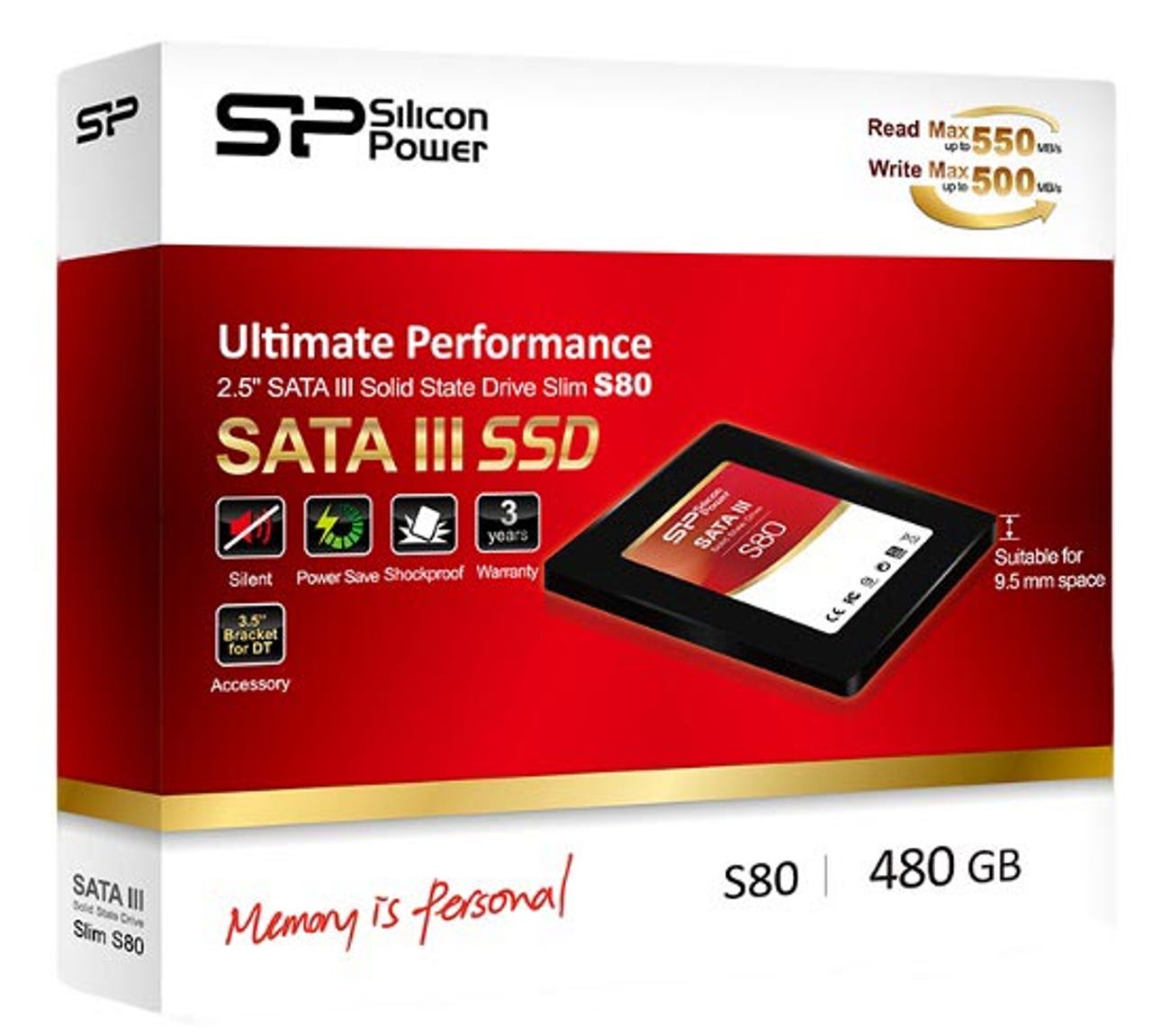Silicon Power releases Slim S80 SSDs for Ultrabook laptops


Thanks to the success of Chromebooks, Intel's Ultrabook laptop platform hasn't been receiving the same amount of attention it garnered when it launched. But that doesn't mean Ultrabooks have disappeared -- and neither has the need for thin components to squeeze into the ultra-slim notebooks.
Small business servers: Why and how you can say 'no' to the cloud
Its timing may not be the best, but Silicon Power has just rolled out a new line of SSDs that fit the bill when it comes to svelte drives for Ultrabooks. The Slim S80 drive family is just 7mm thick, which meets the requirements for Intel's platform, but still offers enough features that upgraders could consider one of the 2.5-inch drives for their next system build or refresh. (Samsung has gone a different direction with Ultrabook SSDs that use the mSATA form factor instead.)
The 6Gbps SATA III S80 drives make use of a Phison controller that helps provide competitive data transfer speeds. Based on ATTO benchmarking, they can provide a maximum of 555MB/s sequential read speeds and 530MB/s sequential writes. They can also deliver 4K random Read/Write speeds of up to 80,000 IOPS. While the ATTO benchmarks show consistent transfer speeds no matter the drive capacity, other benchmarks suggest that the lowest capacities provide lesser performance.
Silicon Power does offer the S80 in an array of storage sizes, ranging from 32GB all the way up to a whopping 960GB. (60GB, 120GB, 240GB, and 480GB flavors are also available.) Reliability features include Error Correction Code (ECC) technology and S.M.A.R.T. monitoring, along with wear leveling, though the S80 drives come with a run-of-the-mill three-year warranty.
Pricing for the S80 family has not been released, though that's not entirely surprising considering that many of the drives may wind up already included in new laptops.
[Via The SSD Review]